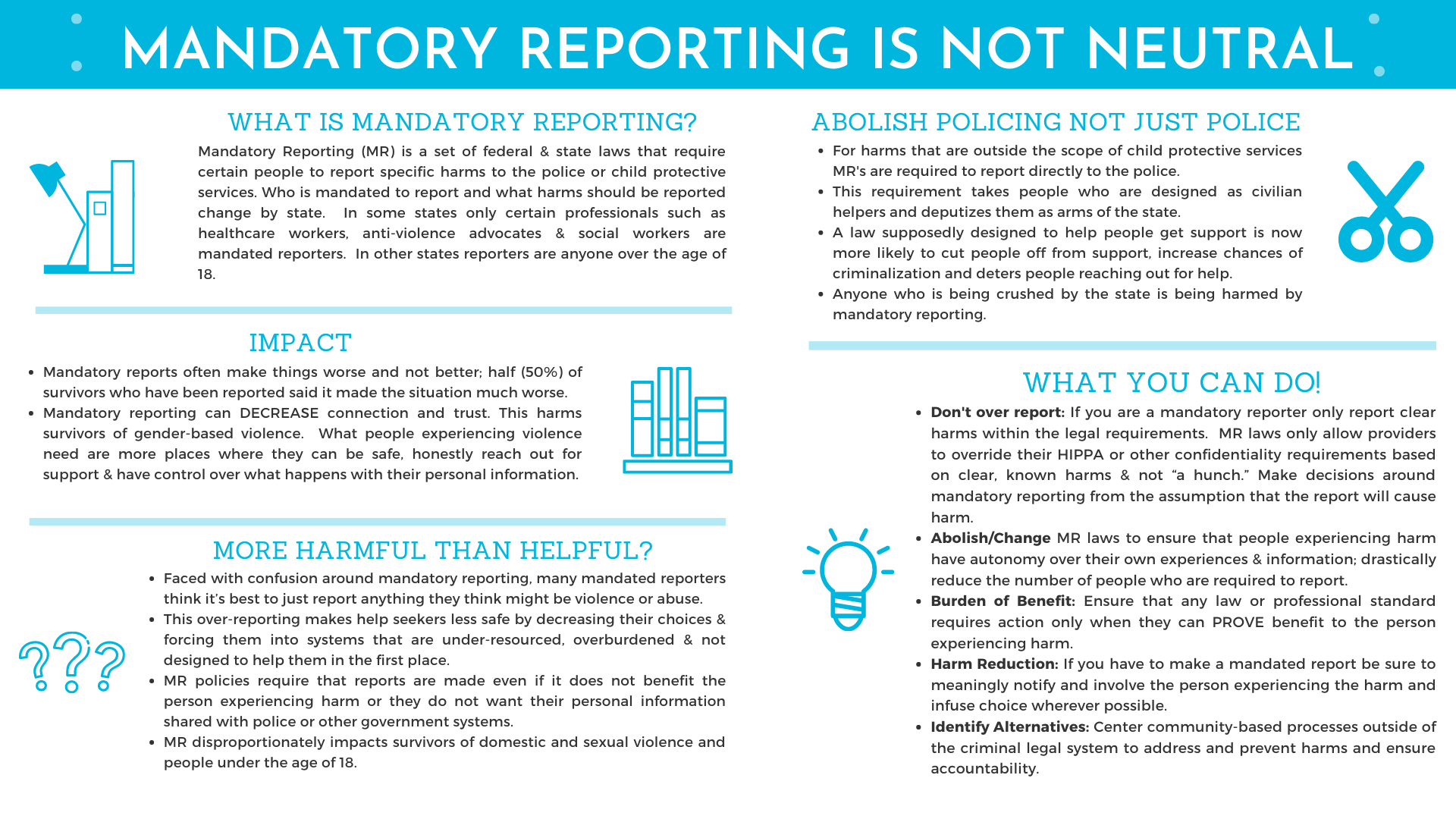The Mandatory Reporting is Not Neutral project works to share survivor stories about the impact of mandatory reporting, educate communities on harm reduction practices and change the conditions that lead to violence and abuse.
What is mandatory reporting?
Mandatory Reporting is a term used to describe a combination of policies, practices and state-based laws that require certain people to report specific harms to government agencies such as Child Protective Services (CPS), Department of Children and Family (DCF), Adult Protective Services (APS) and/or the police.
These laws address several types of harms including:
Child abuse or neglect
Elder abuse and neglect
Suicidality
Threat of imminent harm
Who is mandated to report and what harms should be reported change state by state. In some states only certain professionals such as healthcare workers, anti-violence advocates and social workers are mandated reporters. In other states reporters include anyone over the age of 18.
Faced with confusion around mandatory reporting, many mandated reporters think it’s best to just report anything they thinking might be violence or abuse
Mandatory reports often make things worse and not better; half (50%) of survivors who have been reported said it made the situation much worse (Lippy, C., Burk, C., & Hobart, M. (2016). There’s no one I can trust: The impact of mandatory reporting on the help-seeking and well-being of domestic violence survivors. A report of the National LGBTQ DV Capacity Building Learning Center. Seattle, WA.)
Mandatory reporting can DECREASE connection and trust; in one study when told about mandatory reporting 6 in 10 (60%) participants said the warning they received changed what they decided to share( Lippy et al., 2019).
This over-reporting makes help seekers less safe by decreasing their choices and forcing them into systems that are under-resourced, overburdened and not designed to help them in the first place
Mandatory reporting policies require that reports are made even if it does not benefit the person experiencing harm or they do not want their personal information shared with police or other government systems

